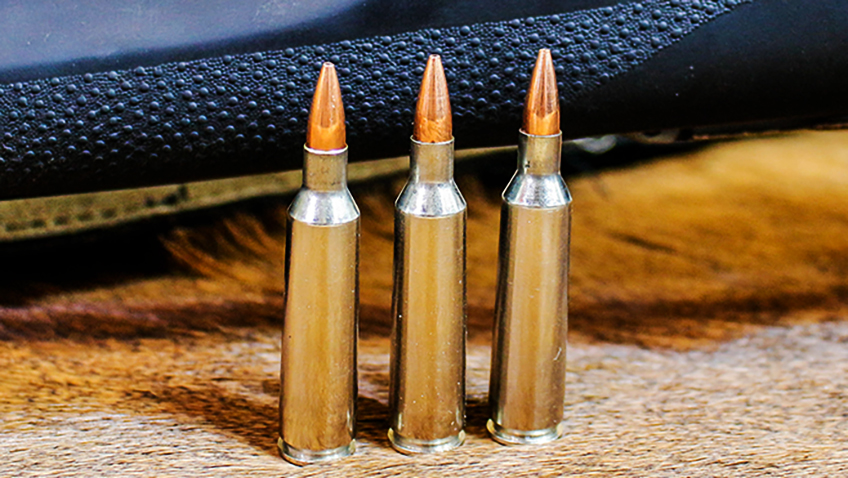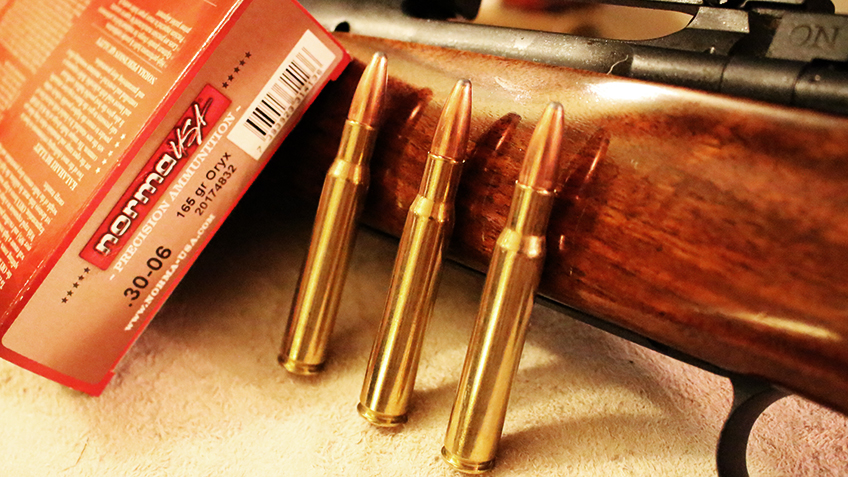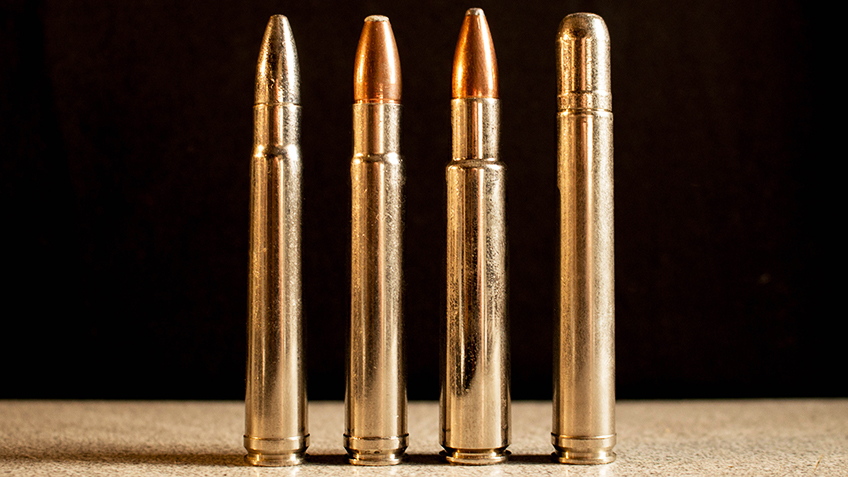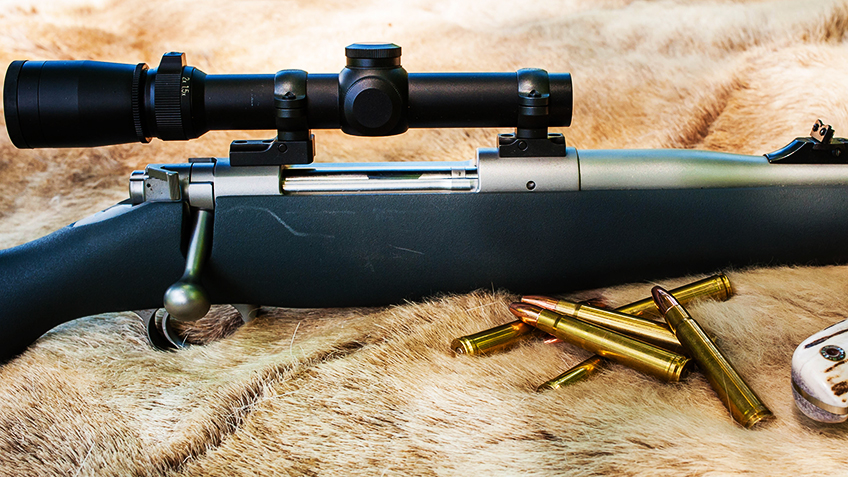
Across North America, our game species are rather diverse, and the applications for a centerfire rifle can range from prairie dogs and woodchucks to elk, moose and the great bears of the north. Add in the multitude of African species—both plains game and the true heavyweights—as well as what’s available throughout Europe and Australia, and you can imagine that the “one rifle” concept is virtually impossible. Quite obviously, the ultimate deer rifle isn’t well-suited for the serious coyote hunter, and a proper Cape buffalo/elephant stopping rifle isn’t the ideal choice for carrying up a sheep mountain. However, depending upon your level of expected hunting, you can choose three good rifles to cover the spectrum.
I’m going to remove the .22 LR from this discussion, as I feel every hunter should own one, even if just for a practice tool. So, let’s look at three choices to cover the world, with perhaps a bit of overlap. If you’re certain that the truly big-game is off the menu for you, the choices will change, and conversely, if they’re on your bucket list, you’ll need a specialized rifle to hunt them. If you’re serious about predators and varmints, a light caliber rifle with a high-magnification optic certainly makes sense, but if the odd coyote hunt in the winter or the dispatching of a rogue woodchuck is the extent of your pursuits of this class of game, your deer rifle may suffice. Let’s break it down and take a look at the possible choices.

1. Varmints/Predators
This type of hunting is usually best served by a high velocity small-bore cartridge. Classic choices are the .223 Remington, .22-250 Remington and .220 Swift, though there are many more to choose from. If you enjoy the AR platform, that rifle can easily be put into use as a varmint/predator rifle, but the majority of die-hard hunters will enjoy the accuracy benefits of the bolt-action guns. Some hunters prefer the lighter calibers, like the .204 Ruger, .222 Remington or .17 Remington, while some of the serious fur hunters appreciate the heavier bullets of the 6mm cartridges, perfect for windier conditions at longer distances. Surely the new .224 Valkyrie will become a friend to the varmint hunter who hunts the open prairies of the West, or those who call coyotes across the hay lots and power lines.
Should you wish to have a rifle that will do double-duty on big game, the various .25-caliber cartridges, the 6.5mms and the .270 Winchester can be loaded with lighter bullets that will minimize the damage to the furbearers. My own personal choice is a well-worn Ruger Model 77 in .22-250 Remington, topped with a Leupold Vari-X III 6.5-20x40AO; that rifle has accounted for all sorts of woodchucks, foxes, coyotes, skunks and other small game. It’s accurate, light and suits me perfectly.

2. Deer, Sheep, Elk and Other Big Game
This will be your most-used rifle if deer hunting is your passion. There are as many good choices as there are ways to hunt deer, so take a long, hard look at what you think you’ll end up hunting. If you’re the type of hunter that enjoys the high mountain hunts in addition to the back forty, the rifle’s weight will certainly be a consideration. If you’re looking for one rig to cover many different scenarios, a trim, polymer or fiberglass stocked rifle with a weatherproof finish will certainly make a lot of sense. Not that I don’t appreciate a handsome walnut stock, but in terrible weather, the synthetic stocks certainly show their value.
Were I to pick one action style to cover these bases, it would most definitely be the bolt-action rifle, probably followed by a trim single-shot rifle, for the simplicity, durability and the cartridges they can be chambered for. There’s a good reason the 7mms and .30s are so popular: they handle a wide range of game effectively. Any of the popular designs in these calibers can make a great all-around choice, from the 7x57mm Mauser, 7mm-08 Remington and .308 Remington, through the classic .30-06 Springfield and into the 7mm Remington Magnum and .300 Winchester Magnum. The faster magnums certainly have a place, but they’re tough on meat when the shots are close, and the recoil can be a factor for some shooters. A good .270 can handle the larger species like moose and elk with good bullets, and the larger .338s can be loaded with lighter bullets for smaller game, but for my money, a good 7mm or .30 makes one of the most sensible all-around choices, and will pair well with the lighter and heavier rifles.

3. Large Dangerous Game
This will be the least-used category, but one that may be required to save your life. Dangerous game is, well, dangerous, and trying to get cute with too light a caliber can be catastrophic. The sensible African all-around cartridge—the .375 Holland & Holland Magnum—has been a sound choice for over a century, and will continue to be so, due to its ease on the shoulder, bullet weight and striking power. The beauty of the three-seven-five is its flexibility; with 300- and 350-grain bullets, it can handle even the largest species, yet with lighter 235- and 250-grain bullets, can be a flat-shooting affair, perfect for larger ungulates like moose and elk. Yet, there are a multitude of dangerous game cartridges that will suit the largest game animals.
The .404 Jeffery, .416 Rigby and .416 Remington Magnum, .458 Winchester Magnum and .458 Lott; all make sound choices for the bolt guns, while the .45-70 Government and .450 Marlin can be effective lever gun choices, especially for Alaska. Among the double rifles, you find the .450/400 3″ NE, .450 NE and .470 NE are all popular choices if you’re inclined to own a double. The larger calibers certainly offer lots of stopping power, but give up a bit in trajectory. Among the most versatile are the .375 H&H, .404 Jeffery, and the .416s; in my opinion they have a bullet weight range and velocity that gives a bit more range.

Three-Gun Batteries
For years, my own three-gun battery consisted of that .22-250, a Ruger 77 in .308 and a Winchester 70 in .375 H&H. Of course, I picked up other rifles along the way, and to my mind, the .300 Winchester Magnum made a sensible replacement to the .308 as an all-around choice, and then I discovered the virtues of the .416 Remington Magnum, especially for large game like Cape buffalo. Then a .404 Jeffery entered my world, along with a .470 NE double rifle, and then a sweet .275 Rigby; while I am intrigued by cartridge performance, a combination of any of these classics would suffice, including my original .22-250/.308/.375 combo.
If you plan on staying on North American soil, the .35 Whelen, 9.3x62mm Mauser or .338 Winchester Magnum could easily be substituted for the heavier cartridges, and would still pair well with a 7mm or .30, or perhaps the middle rifle could drop down to a 6.5mm. Like I said, there’s a ton of overlap in our cartridge choices, but with a little bit of planning, you can cover an awful lot of ground with a trio of rifles.